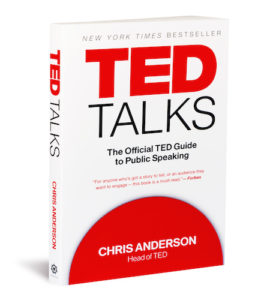3 Things to Include in an Application (Case Study)
Yesterday, I received a spontaneous application from a job seeker. I wanted to share three things that you can do to make better spontaneous applications. There were three things that the person did that I think made this particular email especially well written. In this post, I will share three things.
1. State Purpose
In the very first sentence of the email, the person told me why they are reaching out to me. The first sentence was something along the lines of:
My name is X and I want to tell you I am very interested in 400contacts.
Perfect. Now, I understand why the person is connecting.
A worse introduction would be:
My name is X and I have been working 7 years in sales. In my work as a sales person, I have been learning a lot of things about how to persuade people. I have a great track record of…
Get to the point of why you are writing the email.
2. Establish Trust
The second thing that the person did was to establish trust. The person did this by referring to experiences, which I think you know how to do. But another thing that is more uncommon is that the person referred to a third person that I trust. In sales, this is called the least common denominator. Basically, you need to refer to something or someone the person know. It works like a chore.
Maybe you are thinking now: but I don’t have any person that knows the person I want to get in touch with. Here’s the good news:

You don’t need an intro to someone for connecting and you don’t need to refer to a person.
This is a common misconception. You don’t need someone to refer you to the one you are writing to. But, you need to establish trust and show that you have something in common.
If you don’t have a friend or connection in common, you can always refer to something that the person know. If it is a person that runs a company, you can refer to the company, their customers or their products. You can refer to something the person has written or something that the person have said. Refer to something that the person know.
- I saw that you also went to school X.
- I saw that you were also a member of Facebook group Y.
- I saw that you also worked for company Z.
- I saw that you are also working in Sales.
etc etc etc
If you don’t have something like that in common, create something. For instance:
- I am writing a report about companies that have amazing customer service.
- I am researching companies in Sweden that have amazing revenue growth.
- I am doing a podcast about startups that are growing fast.
In the book, TED talks – the Official TED Guide to Public Speaking, Chris Anderson says that a speaker should talk in concepts that the person understands. He gives amazing examples on how scientists can use easy to understand metaphors to explain complex concepts. The idea is simple, talk in terms that people will understand. All CEOs will understand if you talk in terms of their company because that is what they are experts in.
In short, relate to something people know.
3. Suggest a Specific Next Step
In the end of the email, the person asked for something specific – a commitment free meeting. The only thing I need to think about is finding a time for such meeting.
This is way easier to respond to than when people say: “please review my profile and help me find a job”. Ask for something specific. Like:
I just have one question really, when you are recruiting new
employees, what are the top 3 things you look for in an employee?
I don’t know what specific thing you want to have an answer to. But, please make sure that it is specific and something that the person can respond to. The vague you are in your ask, the more people have to think about their response.
Make it easy for the recipient to say yes and understand what is expected of them.
That is it.
Good luck!
Return to “8 Rules to Win The Job”




 Previous Post
Previous Post
Alot thanks
Thank you so much.